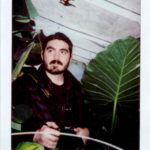Let’s look at the process of discernment and waiting, together
“Be patient toward all that is unsolved in your heart and try to love the questions themselves, like locked rooms and like books that are now written in a very foreign tongue. Do not now seek the answers, which cannot be given you because you would not be able to live them. And the point is, to live everything. Live the questions now. Perhaps you will then gradually, without noticing it, live along some distant day into the answer.” — Rainer Maria Rilke, from “Letters to a Young Poet”
Like many people who make up middle-class America, deciding where I wanted to go to college when I was a senior in high school was the first major decision I had to make for myself. I remember months of agonizing, wondering and praying and putting in the work of touring, applying and interviewing at colleges until one day in late March, the answer crystallized. I knew I would go to Truman. Decision made.
Throughout my life since, some decisions have had that sense of everything dropping into place; others have pulled me towards them like a magnet so I know it is right; for still others, after much consideration and prayer with no clear direction, I have simply chosen what I thought was best and hoped good would come from it (it always has).
Although I wish I could say that making big decisions has gotten easier, it hasn’t, necessarily. What I have come to realize, though, is that it’s okay to not know the answers to all of life’s questions — the ones that require decisions and the ones that don’t — and that I don’t want to miss all of the life happening along the way to the answers. I think it can be helpful to remember that however uncomfortable not having answers might seem at the moment, asking these questions is good. The questions demonstrate a yearning within ourselves for and an orienting towards truth.
A question is a desire for knowledge. A longing for understanding. A quest. We set out, not knowing where this thing we do not know yet will take us or how we will get there but hoping to have this yearning fulfilled. It is, perhaps, one step after one step after one step.
Our society values action over waiting, knowledge and answers over process and questions. While it is true that sometimes it is time to do something or make something happen, it is also true that sometimes it is time to wait. To be patient. To not know.
I think wisdom is to be gathered in the process, through asking the questions and finding our way along to the answers.
This, too, is perhaps what God or love or goodness is: slow, patient, tender. A depth of mystery I could never figure out or fully understand, but who invites me to come deeper and draws me in.
I learn through writing that life, too, is a process. Beginning to write something is asking a question. It is like entering a room in the dark without my glasses on and feeling around for a light switch. It is not being able to find the light switch and then noticing the beauty of the moonlight reflecting off the snow or pond, casting itself into the room for me, which, as my eyes adjust, I find is sufficient to see. It is standing there and opening myself, making myself still to receive what will be given to me and offering what I have already collected within myself through the hard work of living. That is what writing is like.
It is process. Sometimes I will be inspired, and that is okay; it will not always be this way. Sometimes I will not know how to proceed, and that is okay; it will not always be this way. It is the hard work of revision and discipline, of perseverance and making myself present to the page and the world. The answers will come, if I trust and go about my life. If I keep putting word after word after word on the page and realize the ones I have to cut in the end helped get me to the other ideas that needed in. We will figure it out; time will bring us what we need. I just need to be open to receive. This is what life is like.
But what about when the process of waiting for understanding seems to go on too long and feels too daunting, like we will never reach the end? Not knowing, waiting, feeling unfulfilled, can sometimes feel like suffering. In the chapter “Caring for Our Pain” in his book “True Love: A Practice for Awakening the Heart,” Buddhist monk Thich Nhat Hanh gives us a way to open ourselves to our suffering, inviting it in to take care of it.
He writes, “When the mother hears her baby crying, she puts down whatever she has in her hands, she goes into its room and takes the baby in her arms. The moment the baby is lifted into the mother’s arms, the energy of wisdom already begins to penetrate into the baby’s body. The mother does not know yet what is the matter with the baby, but the fact that she has it in her arms already gives her child some relief. The baby stops crying. Then the mother continues to hold the baby in her arms, she continues to offer it the energy of tenderness, and during this time, the mother practices deep looking. A mother is a very talented person. She only needs two or three minutes to figure out what is the matter with her baby. Maybe its diapers are a little bit too tight; maybe the baby has a touch of fever; maybe it needs a bottle? Then when the understanding comes, the mother can transform the situation immediately.”
He continues, “It is the same thing with meditation. When you have pain within you, the first thing to do is to bring the energy of mindfulness to embrace the pain. ‘I know that you are there, little anger, my old friend. Breathe — I am taking care of you now.’”
In welcoming these unanswered questions and acknowledging all of our feelings that surround them — these arrivals to our guest house of being human, as the poem “The Guest House” by Rumi calls them — we can offer our suffering and waiting up for a cause larger than ourselves, praying and trusting it bears fruit. Perhaps one day, then, it will.
Some people relate to God in a very fast way; it seems like they are always receiving answers and knowledge that is certain or that they feel they can put their trust in. I learn from them in it, that maybe the answers I seek are not always as hidden as I make them. It is beautiful. So, too, is this way in which I so often perceive and pray, where we wait months or years to understand and have our questions fulfilled.
Henri Nouwen writes that hope is “not a question of having a wish come true but of expressing an unlimited faith in the giver of all good things. … Hope is based on the premise that the other gives only what is good. Hope includes an openness by which you wait for the promise to come through, even though you never know when, where or how this might happen.”
I read this and I believe. And so: I love you, unsolved questions. You are welcome here, you have a place. Make a home here in my heart. I will not try to rush you on or trick you into being something you are not yet ready to be. I will not try to force or coerce you into giving up your secrets to me. I will not hound you or guilt you or bully you into telling me your answers.
I will just sit, looking at you, admiring you, for your beauty, as you are. For all of the things you do not yet know. For all of your hope and all of your fear, it is beautiful, my dear. I will sit here with you, ask nothing from you and enjoy you — you are here, and so am I. Thank you for asking. You are welcome.
The Guest House
This being human is a guest house.
Every morning a new arrival.
A joy, a depression, a meanness,
some momentary awareness comes
as an unexpected visitor.
Welcome and entertain them all!
Even if they are a crowd of sorrows,
who violently sweep your house
empty of its furniture,
still, treat each guest honorably.
He may be clearing you out
for some new delight.
The dark thought, the shame, the malice.
Meet them at the door laughing and invite them in.
Be grateful for whatever comes.
Because each has been sent
as a guide from beyond.
— Jalāl ad-Dīn Muhammad Rūmī,
translation by Coleman Barks
Prayer of Teilhard de Chardin, SJ
Patient Trust
Above all, trust in the slow work of God.
We are quite naturally impatient in everything
to reach the end without delay.
We should like to skip the intermediate stages.
We are impatient of being on the way to something
unknown, something new.
And yet it is the law of all progress
that it is made by passing through
some stages of instability —
and that it may take a very long time.
And so I think it is with you;
your ideas mature gradually — let them grow,
let them shape themselves, without undue haste.
Don’t try to force them on,
as though you could be today what time
(that is to say, grace and circumstances
acting on your own good will)
will make of you tomorrow.
Only God could say what this new spirit
gradually forming within you will be.
Give our Lord the benefit of believing
that his hand is leading you,
and accept the anxiety of feeling yourself
in suspense and incomplete.

